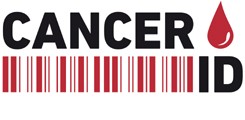International and National Research Cooperations
EU (European Union)
-
CANCER-ID - Cancer treatment and monitoring through identification of circulating tumour cells and tumour related nucleic acids in blood
Klaus Pantel, Co-Coordinator (Scientific Coordinator)
More than 32 European partners
Please visit the CANCER-ID website
This consortium aims to validate technologies for CTCs, cfDNA and circulating microRNAs as blood-based biomarkers to determine the absence/presence of drug targets and/or assess response to treatment in NSCLC (large indication) and Her2RMBC (small indication). The validated assays will be deployed in controlled prospective clinical studies and compared with immune-phenotype and molecular data obtained from tumour biopsies and correlated with patient responses to therapy.
Current therapeutic strategies in particular for NSCLC are chemotherapy and drugs targeting specific molecular targets and pathways. The number of specific targets is increasing and about a third of non-squamous cell lung carcinomas especially adenocarcinomas have specific targets. Since these therapeutic targets are only expressed in a subset of tumours the development of companion diagnostics that can be used for stratification and/or monitoring of these therapies in individual patients is of utmost importance for future drug development.Breast cancer is the most common malignancy in women, and although several therapeutic options are already available (e.g., chemotherapy, endocrine therapy, antibodies, etc.), resistance to these therapies significantly limits the success rates. In CANCER-ID, we will therefore focus on breast cancer patients who failed to respond to HER2-targeted therapies.HER2 is the most prominent molecular target in breast cancer and it defines a clear molecular subtype. Both lung and breast cancer comprise of approx. 800,000 new cases in the EU and these two tumour types are responsible for more than 50% of cancer-related deaths in women.
Blood-based companion diagnostics will be important to improve systemic treatment and to design new clinical trials in these patients. When implemented in clinical practice it will result in personalized medicine by adapting the therapies to the individual risk of the cancer patient. Important challenges for all circulating biomarker developments are assay sensitivity, specificity, standardization and validation. Standard operating procedures (SOPs) are, however, generally lacking and will be provided and introduced by CANCER-ID.
The CANCER-ID partners comprise a unique network of experts in the fields of tumour biology, biomarker development, clinical sciences and bioinformatics. Members of this consortium are all internationally recognized for their work on CTCs, cfDNA and circulating cell free microRNA (cfmiRs), and have implemented liquid biopsies in clinical research studies. In addition, regulatory agencies (EMA/FDA) and patient advocacy group (Mammazone) are involved from the beginning of the project. The coordinators of this consortium have coordinated FP6/FP7 EU consortia and published seminal reports on disseminating tumour cells.
-
ELBA Marie Skłodowska-Curie Innovative Training Network (ITN)
ELBA - European Liquid Biopsies Academy. Towards Widespread Clinical Application of Bloodbased Diagnostic Tools
12 European Participants
Klaus Pantel, PI
ELBA will train a new generation of multidisciplinary researchers that are equipped to realise the next generation of liquid biopsy tests, to fulfil the full potential of this technology in a range of applications and disease areas.
At the Institute of Tumor Biology, 2 Early Stage Researchers (PhD students) will stay for 3 years.
EU / BMBF (Federal Ministry for Education and Research)
-
PROLIPSY TRANSCAN-2 - Minimally and non-invasive methods for early detection and/or progression of cancer
Klaus Pantel, Project Coordinator
Partners
Italy: Istituto Superiore di Sanità
France: University Medical Centre of Montpellier IURC
Greece: University of Athens
Poland: Poznan University of Medical SciencesProstate cancer (PCa) is a major cause of cancer-related mortality and morbidity in men of the western world. Standard PSA screening has a high rate of false-positive findings (up to 60%) and therefore more specific methods for early detection of PCa are urgently needed. Recently, partners of our consortium have played a key role in implementing the concept of “Liquid biopsies” (i.e., analysis of tumour cells or tumour cell-derived nucleic acids and exosomes in blood) into research on PCa (TRANSCAN project CTCSCAN, ended in 2016) and other solid tumours (EU/IMI project CANCER-ID). The primary aim of this research proposal is to improve blood-based detection of PCa patients by testing of circulating tumour cells (CTCs), tumour-derived exosomes and circulating cell-free DNA (cfDNA) as Liquid biopsies.
Analysing peripheral blood samples from men with elevated PSA concentrations that undergo prostate biopsy, we will stratify patients in cancer and non-cancer cohorts based on the outcome of the histological evaluation of the tissue biopsy. Cancer patients will undergo surgical resection or radiotherapy. In the first year (discovery period), we will assess which Liquid biopsy marker or combination of markers will (i) provide the best discrimination between the two cohorts and (ii) identifies in particular high-risk PCa patients with aggressive tumour as defined by a Gleason score (“gold standard”) of 8 or higher. Biobanks from former studies on PCa (e.g., CTC-SCAN) will be used in particular for plasma studies (cfDNA, exosomes).
Candidates will be further explored in the subsequent training and validation study (years 2 and 3) in order to obtain the blood test with the highest sensitivity and specificity for detection of early PCa and/or highrisk PCa. Blood from men with elevated PSA levels (gold standard for PCa screening) will be analysed prospectively before tissue biopsy are taken to avoid biopsy-induced interference of blood results. Comparing the results of Liquid biopsy with tissue biopsy histology (gold standard for PCa diagnosis) we will identify single or blood-based marker combination with the highest sensitivity and specificity for detection of total PCa and/or high-risk PCa. The unique combination of expertise assembled in this consortium will guarantee a complementary investigation of the relevance of Liquid biopsy for early detection of PCa at the European level.
-
TANSCAN CTC-SCAN - Circulating Tumor Cells as Biomarker for Minimal Residual Disease in Prostate Cancer-Induced Bone Diseases
TRANSCAN ERA-Network (European Research Area Network on Translational Cancer Research)
Circulating tumour cells (CTCs) have been verified as prognostic markers for disease progression in various cancer types.
Klaus Pantel, PI
Partners
France: University Medical Centre of Montpellier
Greece: University of Athens, Department of Analytical Chemistry
Austria: Medical University of Graz, Institute for Cell Biology, Histology and Embryology
Poland: Poznan University of Medical Sciences, Department of Histology and Embryology
Germany: GILUPI GmbH
USA, Raritan: Janssen Diagnostics, LLCThis project is aimed to validate the number of CTCs isolated from patient’s blood as a prognostic marker for relapse in high-risk prostate cancer (PCA) patients treated with primary radical prostatectomy or radiotherapy. CTC isolation and enumeration will be realized by three different assay formats in comparison.
- Isolation of CTCs from blood samples using CellSearch® as the current “gold standard” for CTC detection,
- EPISPOT assay that detects viable CTCs and
- GILUPI nanodetector that captures CTCs in vivo.
The systematic approach chosen in this project will validate CTC detection as a novel biomarker for predicting clinical outcome in PCA patients. A validated procedure for CTC detection and characterization will improve risk assessment and contribute to a better stratification of PCA patients to future adjuvant therapies adjusted to the individual risk of each cancer patient.
-
LIQUOPSY - Liquid biopsy: In vivo capturing and molecular characterization of circulating tumor cells as a novel tool
Liquid biopsy: In vivo capturing and molecular characterization of circulating tumor cells as a novel tool for improving tertiary prevention in breast cancer
Klaus Pantel, Project Coordinator
Partners
Greece: University of Athens
Greece: University of Crete
Germany: GILUPI GmbHThe described deficiencies of current CTC assays have generated skepticism in the medical community about the reliability of current CTC testing, which is part of the reasons why CTC analyses are still not recommended for patient management by medical associations (e.g., ASCO). The CE-certified nanowire device developed by the SME GILUPI has the potential to solve the main obstacles of CTC testing.
The project will strengthen the existing collaboration between the Greek and German partners (see below) and has the following specific objectives:
- Increasing the yield of CTCs by analysis of large amounts of blood (1.5 L) using in vivo CTC cap-ture as a novel approach;
- Implementation of new cell surface antigens that will capture in vivo CTCs undergoing an epithelial-mesenchymal transition;
- Development of reliable assays for molecular and genetic characterization of CTCs;
- Addressing the key question of a liquid biopsy as to whether CTCs resemble the corresponding primary tumors in non-metastatic patients at primary diagnosis or distant metastases in patients at the time of metastatic relapse.
Breast cancer will serve as model disease, since CTC testing has been widely implemented and clini-cal results for the first nanowire product are available for this cancer entity.
BMBF (Federal Ministry for Education and Research)
-
Ci3: Development of a Microfluidic-Based System for Enrichment and Single Cell Analysis of Circulating Tumor Cells (CTCs)
Ci3 = Cluster for Individualised ImmunIntervention
Klaus Pantel, PI for part of the UKE
The joint project will develop a system to isolate and individually characterize circulating tumor cells (CTCs).
"Using a microfluidic system, the isolation of CTCs from blood will be largely automated and standardized allowing robust and accurate counting of the isolated cells as well as further characterization on a molecular and single-cell level. This will be realized by the interdisciplinary collaboration of affiliates with long-standing expertise in the fields of cancer biomarkers, clinical CTC-analysis and microfluidic-based technology products. The projected system addresses current challenges in biotechnology and healthcare. The prognostic relevance of the number of CTCs that can be detected in blood of cancer patients is well documented. Although solutions currently available on the market allow CTCs to be counted using specific marker antigens, these closed systems do not allow further molecular analysis of the isolated cells. The projected system will be able to detect, sort and isolate CTCs and, additionally, allow a subsequent molecular characterization of the recovered cells based on predictive/theranostic markers. This may facilitate optimal patient therapy selection and monitoring during therapy in addition to prognostic statements based on CTC-counts."
Quoted from website http://www.ci-3.de/en/projects
_buehnenbild_contentseite.jpg)



